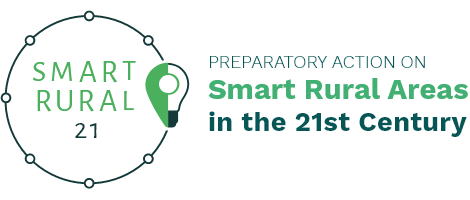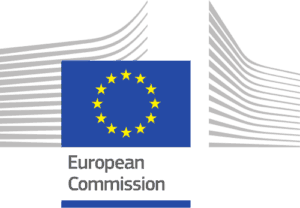Penela

The Municipality of Penela is a small territory of approximately 135 km2 and 5 983 inhabitants, located in the Centro region of Portugal.
Since 2007, Penela has recognised the importance of defining a sustainable local strategy focused on innovation, competitiveness and entrepreneurship, able to create competitive advantages from the differentiating factors of the Municipality and establish strategic partnerships that could exploit real opportunities. With this in mind, we created the Director Programme for Innovation, Competitiveness and Entrepreneurship (DP-ICE).
In 2010, Penela joined the European Network of Living Labs (ENoLL) which brings together companies, researchers and public institutions,. It works to promote cooperation and creativity and create new products and services that will test in real life, aiming to promote the integration of areas of low population density in a challenging globalised world. This is the Smart Rural Living Lab, a member of the ENoLL.
Depopulation is the most difficult challenge that we will face but the most important thing is to set a winning strategy to attract new residents and tourists to these villages. The environmental excellence, the high quality of education, the local economic resources valorisation and the continuous bet in an innovative and entrepreneurial culture need to set the path to a sustainable local economy in the future.
Ferraria De São João- Community action in ecological design and quality tourism activities
Follow along with our Village Roadmap here :
A series of actions has been supported to ensure innovative goat and forest management practices to prevent forest fires also including the use digital technology through improving a new version of the digital platform: FarmReal, improve community action in ecological design and quality tourism activities.

Step 1/5 : Ensure the best management practices in the Village Protection Zone (agro-forestry production system)
Ensure the best management practices related to the community dairy goat production preventing forest fires: In order to prevent situations such as the 2017 forest fire, the experts of the local ARFSJ association started a process of recovery, applying effective management system based on goats breeding Several activities (e.g. training sessions for shepherds, testing of different ways on how to best manage the goats’ herd) were developed in order to find the balance between the objectives linked to the preservation of biodiversity, control and reduction of forest fuel loads and adequate feeding for milk goats. Practical factsheets were prepared to be used as basic guidance on how to best manage the goat herd, targeting, at the same time, the reduction and control of forest fuel loads. The main outcomes of the activities were translated into good practicesfor the management of the community herd and other herds managed by local producers. You can read the action report here.

Step 2/5 : Preparation, implementation and monitoring of the Masterplan based on an innovative model of ecological design
Implementation of an innovative model of ecological forestry production and management and respective monitoring of results (Masterplan). The local population recognised the importance of creating a natural shield against forest fires on the outskirts of the village, in order to make it safer and more resilient facing similar scenarios to those experienced in 2017. The objective of the action is the implementation of the Masterplan with specialised support and by planning and carrying out the forestry operations on the basis of volunteer work. Bootcamp was organized in 2022 March for the local community and participants from other neighbouring villages to experiment a planting method with a certain choice of plants in the area and to demonstrate on how the recovery of the forestry area can be done in the most environmentally sustainable way. You can read the action report here.

Step 3/5 : Capacity building and on-going technical support to the community members who are willing to engage with tourists and visitors
Capacity building and on-going technical support to the community members who are willing to engage with visitors: Tourism – based on products produced by local farmers – is a key economic activity in the village. However, it was long clear the lack of the required skills, namely, in terms of social, relational, intercultural and communication abilities to address and engage with visitors and tourists to the village. In order to ensure quality tourism activities (e.g workshops on daily activities of the village run by local producers such as producing goat cheese and bread with artisanal methods) trainings and capacity-building actions have been organised for local people. The main aim of the training sessions (google translated Engish version) that took place in March-April 2022 and on-going technical support is to develop the tourism activities at the village and diversify and increase community members’ income.

Step 4/5 : Development of the legal pieces, including, renovation works, to enable the use of the Multi-purpose community space also for commercial purposes
The Association of Residents of Ferraria de São João (ARFSJ) together with the inhabitants of the village identified the need and relevance of having a multi-purpose community space where local people can gather (e.g villag meetings) , workshop for visitors and tourists (e.g about recreating the processing of local agricultural products using traditional methods) and school children (e.g about traditional agro-forestry system and environmental sustainability) can be developed and local products produced by the village inhabitants can be sold (e.g. goat cheese produced in a traditional way) The space / building that it was possible to find and rent needs to be adapted for the aforementioned purposes. To this end, the Smart Rural 21 supported the creation of the required documents (licensing and architectural renovation) to request an amendment to the current license. For executing the project, the mandatory documents were gathered, and the necessary design and written pieces were elaborated.

Step 5/5 : Digital platform FarmReal – Early stage technology impact assessment and release of Version 2
FarmReal is based on a disruptive community herd concept as a response to curb uncontrolled vegetation growth and ensure the recovery of soil fertility. In addition to assuming an essential role in the prevention of forest fires, FarmReal consists in an online platform that allows registered users to adopt and monitor the daily life of the herd of goats Ferraria de São João has been the pilot site for this project. Up to the present, the Version 1.0 of the website was realised, which has been tested by 30 users. The Smart Rural 21 project contributed to developing version 2.0 of the platform, obtaining feedback coming from the testing of new functionalities and of usability and performance. You can read the here the full report and short summary of the report.
Cumeeira 'social village'
Follow along with our Village Roadmap here :
Penela-Cumeeira has sought expert support to prepare concrete steps for the use of digital technologies to help transform the village - under the heading “social village” - into a place where special services are available to older people suffering from chronic diseases or having other care related needs. Such support services should be suitable to promote senior tourism and improve the quality of life of older people.

Step 1/3 : Initial scoping paper
empirica provided the village with a methodology for the co-development of digital e-services with local stakeholders, complemented by a first scoping paper outlining how different types of digital technologies might support the envisaged concept of a “social village”

Step 2/3 : Ambition focusing
A guidance document was developed for consolidating the initial vision with all relevant stakeholders in a structured manner. It identifies a range of guiding questions along which the high-level vision for the “Social Village” can be translated into specific e-services.

Step 3/3 : Outlook
As a next step, the local stakeholders need to co-develop of a joint view on concrete digital service that are suitable to support the initial vision of a “social village”, e. g. by means of a series of focused stakeholder workshops. Based on the outcomes, the local stakeholders need to critically reflect on the strengths and weaknesses of the hitherto envisaged digital service approaches from a practical point of view. When doing so, aspects that might make it difficult or perhaps even impossible to put specific services into practice should receive particular attention. For example, do we know exactly what specific support needs the envisaged target group(s) would have? Which local stakeholder would be capable and willing to provide digital services to them? How can they provide the envisaged digitals services in an economically sustainable manner? These and similar questions should be critically reflected upon. If all relevant questions can be answered satisfactorily, an operational plan needs to be agreed that sets out how the envisaged e-services are to be put into practice. Such an implementation plan should assign clear responsibilities and include a timetable that clearly shows which stakeholder needs to do what and by when.
Videos
4th Smart Rural Café - Penela
During the 4th Smart Rural Communities’ Café, hosted by Penela (Portugal), Luís Matias was talking about how IoT technologies in goat-farming have contributed to leveraging territorial marketing and development as well as about their plans on how to develop the right methods and facilities for a healthy ageing of elderly people in one of their small villages.
Identity with future
Resources :
Municipality of Penela
The Smart Village Strategy of Penela – Ferraria De São João has been developed in the context of the ‘Preparatory Action for Smart Rural Areas in the 21st Century’ project funded by the European Commission.
Language : English
Municipality of Penela ( 12/2020 )
The Smart Village Strategy of Penela – Cumeeira has been developed in the context of the ‘Preparatory Action for Smart Rural Areas in the 21st Century’ project funded by the European Commission.
Language : English
Municipality of Penela ( 12/2020 )
The Summary Highlights of the Smart Village Strategy of Penela – Ferraria De São João has been developed in the context of the ‘Preparatory Action for Smart Rural Areas in the 21st Century’ project funded by the European Commission.
Language : English
Municipality of Penela ( 12/2020 )
The Summary Highlights of the Smart Village Strategy of Penela – Cumeeira has been developed in the context of the ‘Preparatory Action for Smart Rural Areas in the 21st Century’ project funded by the European Commission.
Language : English
Photo gallery :
https://www.cm-penela.pt/
Twitter: @MunPenela
Facebook: @municipiopenela.oficial
Instagram: municipiodepenela








